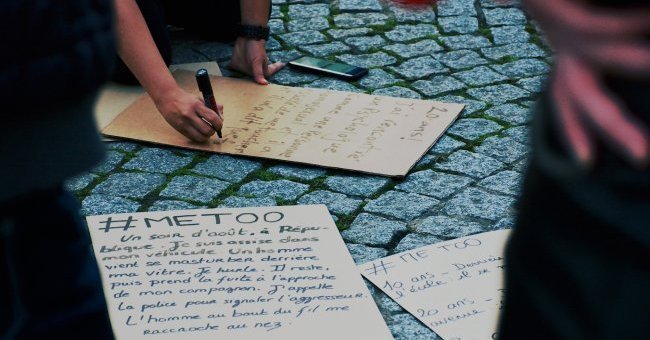On the 15th of November, Voix d’Europe published an article on the European Union’s mobilisation for the fight against any form of sexual abuse. Here is a large extract:
Europe wants to break the silence
As this protest movement is growing, the European Parliament has also decided to tackle this matter by asking the Commission to suggest a strategy at the European level which would include a legislative project with restrictive tools to protect women from violence, in particular harassment and sexual abuses against women and girls. The Parliament also asked the Union’s executive power to look into cases of sexual abuses that happened inside the Parliament. To do so, the MEPs who strongly condemn such abuses have called for the creation of a committee of independent experts to review the situation inside the institution.
New measures within European but also national institutions
Moreover, the MEPs have regretted the lack of reaction regarding these unacceptable acts and wish to put forward measures to fight against the weak reporting rate. There will be no tolerance and perpetrators will be systematically sued. They also agreed on the launch of awareness campaigns to fight against sexual harassment and to encourage the victims to speak up. The decision was well received by the hemicycle: it was adopted by 580 votes in favour, 10 against and 27 abstentions.
Cases of sexual harassment that happened in the European Parliament will be carefully reviewed and mandatory training courses on respect and dignity at work for the staff and the MEPs must be quickly organized. After reviewing the situation at the European level, the Member States will also probably have to shed light on cases of sexual abuse within national parliaments. It will then be up to the governments to take measures so that such behaviours will not happen again.
The EU adopted the Istanbul Convention
In June 2017, the European Union has (finally) officially signed and joined the Council of Europe’s Convention on Preventing and Combating Violence against Women and Domestic Violence (Istanbul Convention, adopted on 7 April 2011, entered into force on 1 August 2014). Not only is this signature symbolic: it sends a strong message to the EU member states (only 14 of them have ratified the Convention, the 14 others have only signed it for now) as well as to the international community by recognizing the pan-European legal framework written in this Convention.
Nevertheless, there is of course still a lot to be done concerning the fight against harassment and violence against women and girls and regarding how people perceive these abuses. A Eurobarometer survey of November 2016 found how European citizens perceive these abuses: 27% of respondents think that rape can be justified in certain circumstances (being drunk or wearing a sexy outfit, for example), 22% consider that women exaggerate or even invent the accusations of rape or mistreatment, this figure ranged from 8% in Sweden to 47% in Malta. [1]
The fight against any type of violence perpetrated on women and girls cannot be confined to measures adopted by the European institutions and the EU member states. It would be impossible to list and inform here of all initiatives taken daily at the local level. This is the action of NGOs, associations, collectives and media that allow to break the silence and give a worldwide resonance to women and girls’ voice. It is our duty to turn this speech into acts, because the fight for the elimination of violence against women is not a day-long fight (of November 25th) but a daily fight which should concern us all, women and men.




Follow the comments: |
|
